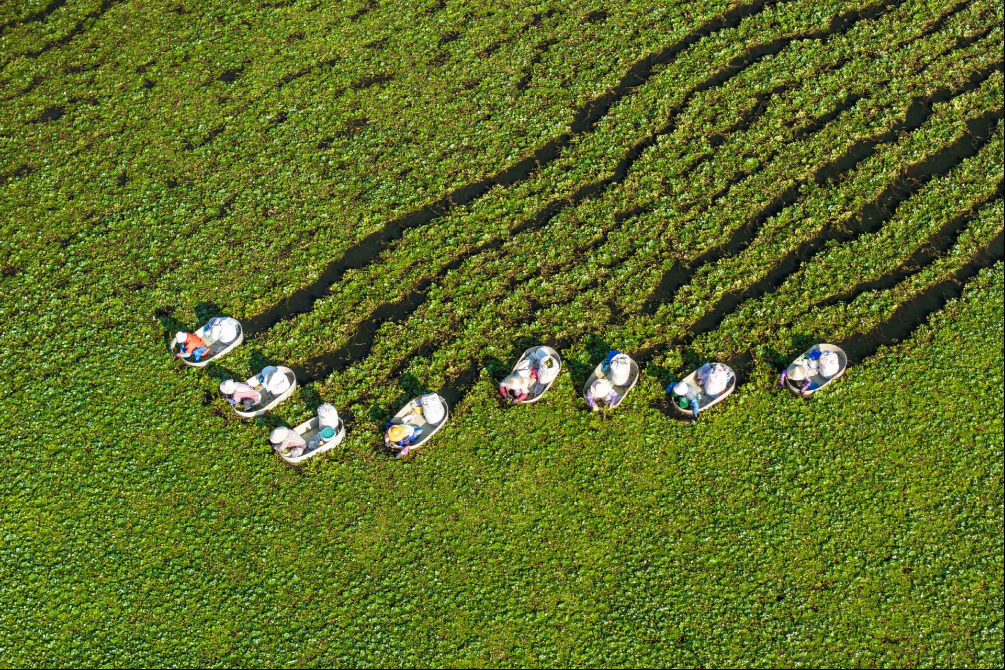China turns ancient caves into big data treasury


MYSTERIOUS HUMAN DWELLINGS
With most of its parts tucked away in deep mountains, Guizhou has remarkable karst landforms, with vast unknown underground cave resources. For hundreds of millions of years, it has been experiencing intermittent geological uplifts, creating more than 5,000 limestone caves.
Some karst caves sheltered primitive humans from storms and beasts and gradually became their primitive homes. At the Zhaoguodong cave site, Gui'an New Area of Guizhou, researchers found rich cultural layers dating back around 44,000 to about 3,000 years ago in soil and rocks of merely eight meters in thickness.
So far, 51 ruins using fire and two tombs have emerged there. About 25 kinds of recognizable animal remains, including pig, cow and tiger, and plants like rice, millet, kiwi fruits and grapes, were discovered.
"The ruins at Zhaoguodong cave site span the entire late Paleolithic and Neolithic Age, very rare in the whole country," said Zhang Xinglong, deputy director of the provincial institute of cultural relics and archaeology, adding that the site boasts one of China's hitherto most abundant fire remains in the late Paleolithic Age.
Modern Guizhou still treasures its historical and cultural bonds with the caves.
In Longchang township of Xiuwen county, Wang Yangming, one of the most influential Neo-Confucian philosophers in the Ming Dynasty (1368-1644), used to live in a natural cave after being relegated by the emperor. The Yangming Cave, where he lived, is now deemed a shrine for his followers and the birthplace of his ideas, drawing tourists, scholars and experts.
During this year's May Day holiday, Shuanghe Cave, Asia's longest cave in Suiyang county of Zunyi city, held a trendy week-long music festival, the first of its kind in the province's karst caves.
The novel karst cave music week helped attract about 38,000 visitors and music fanatics to the cave during the holiday.
While the symphony of natural echoes and beautiful notes helps refresh people's experience of the old caves, Guizhou is also tapping into the cave resources to develop its digital economy centered on big data.
- Chinese scientists reveal light utilization mechanism of major seaweed species
- Agricultural heritage conference opens in Hunan province
- China updates master plan for shelterbelt forest
- Chinese aircraft carrier's course 'in line with international law'
- China strengthens legal education with new legislation
- China's third aircraft carrier sails into South China Sea for tests





































